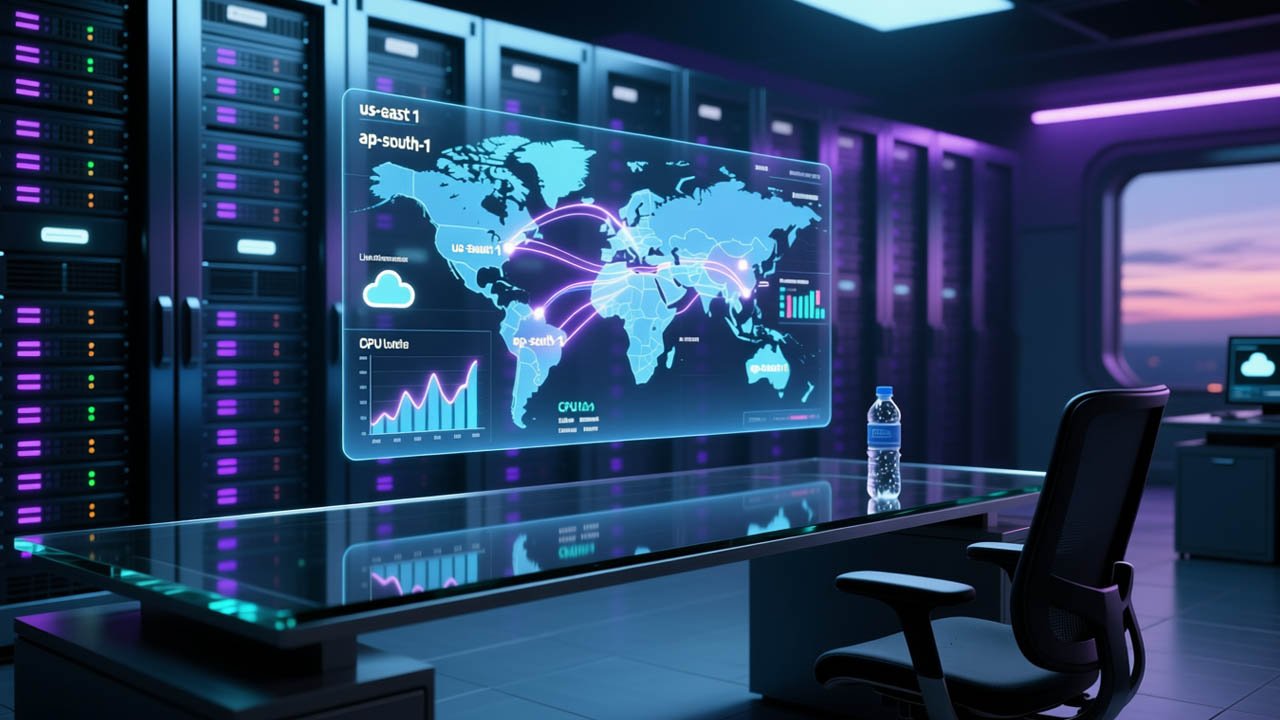You just streamed a 4K movie, ordered a car with your phone, and ran your company’s entire quarterly payroll. You probably didn’t think twice. Yet, all of it—every swipe, every click, every complex calculation—ran on a computer owned by someone else.
That is the profound, invisible power of cloud computing.
Table of Contents
But this convenience masks a brutal, high-stakes strategic battle. The fight for cloud dominance is a fight for the very infrastructure of our digital world. For any business, from a two-person startup to a Fortune 500 giant, choosing from the list of top cloud computing companies in the USA is no longer a simple IT decision. It is one of the most critical, long-term strategic commitments you will ever make.
This isn’t just about “renting servers.” It’s about choosing your platform for innovation. Are you buying into Infrastructure-as-a-Service (IaaS), the raw building blocks of compute and storage? Or Platform-as-a-Service (PaaS), a more managed environment where you focus on your code? The answer dictates your speed, your costs, and your future.
The New Titans: Why Choosing a Cloud Provider Is Your Most Critical Decision
In the not-so-distant past, a serious company proved its mettle by building a data center. It was a capital-intensive badge of honor, a fortress of blinking lights and whirring fans.
That model is, for most, dead.
The new model is agility. The new currency is speed-to-market. The new battlefield is the cloud. Why build a fortress when you can rent a key to an infinitely scalable empire? The top cloud computing companies USA are not just landlords; they are a la carte providers of superpowers. With a credit card, you can access globe-spanning networks, sophisticated AI models, and processing power that would have been the exclusive domain of governments just a decade ago.
This power comes with a pact. Choose a provider, and you begin building on their tools, learning their systems, and integrating with their “stack.” The provider you select becomes less a vendor and more a partner, deeply embedded in your operations.
This guide analyzes the major players—the clear rulers, the specialized challengers, and the developer-focused upstarts.
The Big Three: The Rulers of the Cloud Kingdom
You cannot discuss the cloud without first paying fealty to the “Big Three.” These three American tech giants control the vast majority of the public cloud market. They are the default choices, and the battle between them is fierce, driving innovation at a relentless pace.
1. Amazon Web Services (AWS)
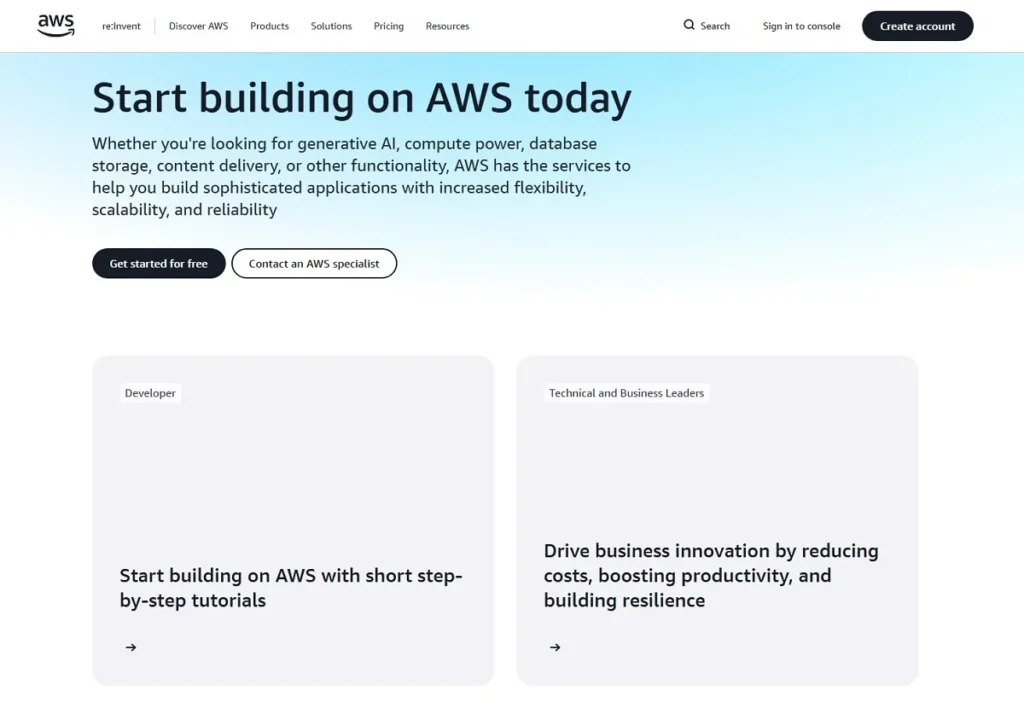
Amazon Web Services (AWS) is the 800-pound gorilla. It’s not just a market leader; it created the market. Born from Amazon’s own internal need to manage its colossal e-commerce operation, AWS launched commercially in 2006 with its Simple Storage Service (S3). It was a revolutionary idea: offer raw infrastructure components as a metered utility.
Why They Win: Maturity and a truly staggering menu of services. AWS has over 200 fully-featured services, from basic compute (EC2) and storage (S3) to quantum computing, robotics development, and satellite ground stations. If you can dream of a digital service, AWS probably has a managed offering for it. This maturity also means a massive, established community, a deep well of talent, and proven reliability.
The Nuance: The sheer scale of AWS is both its greatest strength and its biggest challenge. For new users, the AWS console can be an overwhelming maze of acronyms and services. Costs, while flexible, can spiral out of control if not meticulously managed. It’s the “everything store” for the cloud, but sometimes you just need a corner shop.
2. Microsoft Azure
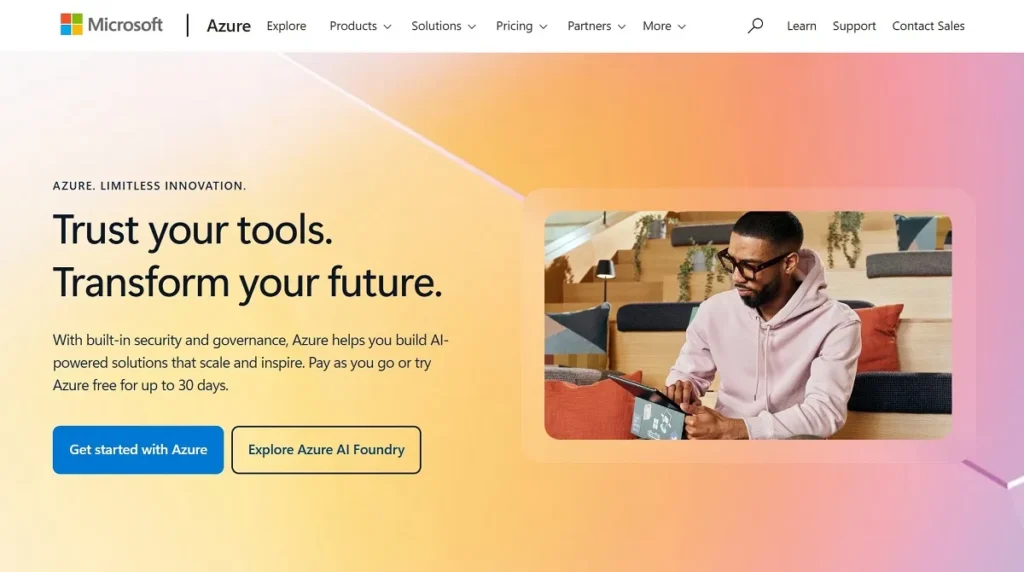
If AWS is the everything store, Microsoft Azure is the integrated enterprise ecosystem. For decades, Microsoft has owned the enterprise software market. Windows Server, SQL Server, Active Directory, and the Office suite are the bedrock of global business. Azure is the natural, logical extension of that dominance.
Why They Win: Unmatched enterprise integration. For a company already running on a Microsoft stack, moving to Azure is a path of least resistance. It offers “hybrid” capabilities that are second to none, allowing businesses to seamlessly blend their on-premise data centers with the public cloud. With its massive investment in OpenAI, Azure has also positioned itself as a, if not the, premier platform for deploying large-scale generative AI.
The Nuance: Azure’s “Microsoft-first” DNA can sometimes be a negative for teams built on open-source tools, though the company has made massive strides in embracing Linux and other platforms. Its interface is generally considered cleaner than AWS’s, but its service catalog, while vast, is still playing catch-up in some of the more niche areas.
3. Google Cloud Platform (GCP)
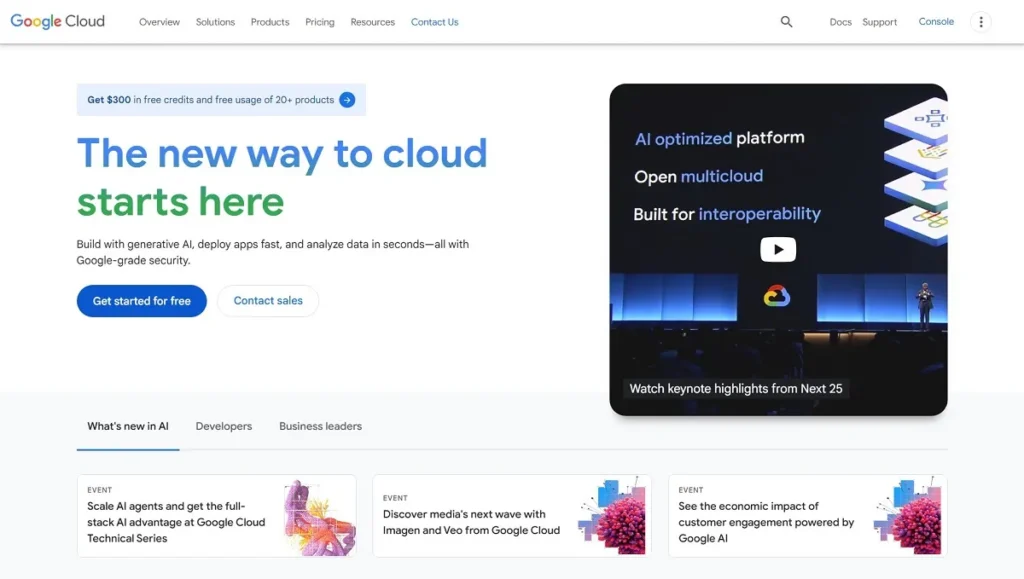
Google Cloud Platform (GCP) is the innovator’s choice. This is the platform built by the company that mastered global data, scaled containers before anyone else, and created some of the most important AI breakthroughs in history.
Why They Win: Data, AI, and Kubernetes. GCP is the undisputed leader in data analytics (BigQuery) and machine learning (Vertex AI). It’s the home of TensorFlow, TPUs (Google’s custom AI-accelerating hardware), and Gemini. It is also the birthplace of Kubernetes (GKE), the open-source standard for managing containerized applications, making it a favorite of tech-forward, cloud-native companies.
The Nuance: GCP has long fought a battle for third place, and with it, a reputation for being less “enterprise-ready” than its rivals, particularly in the sales and support departments. While this has changed dramatically, the perception lingers. It’s a platform loved by engineers, sometimes more than it’s loved by procurement departments.
The Specialized Challengers: 7 More Top Cloud Computing Companies USA Businesses Rely On
The dominance of the Big Three is not total. A secondary market of specialized providers thrives by not trying to be the everything store. They compete by being faster, cheaper, simpler, or by serving a specific niche better than anyone else. These are some of the other top cloud computing companies that USA-based businesses turn to.
4. Oracle Cloud Infrastructure (OCI)
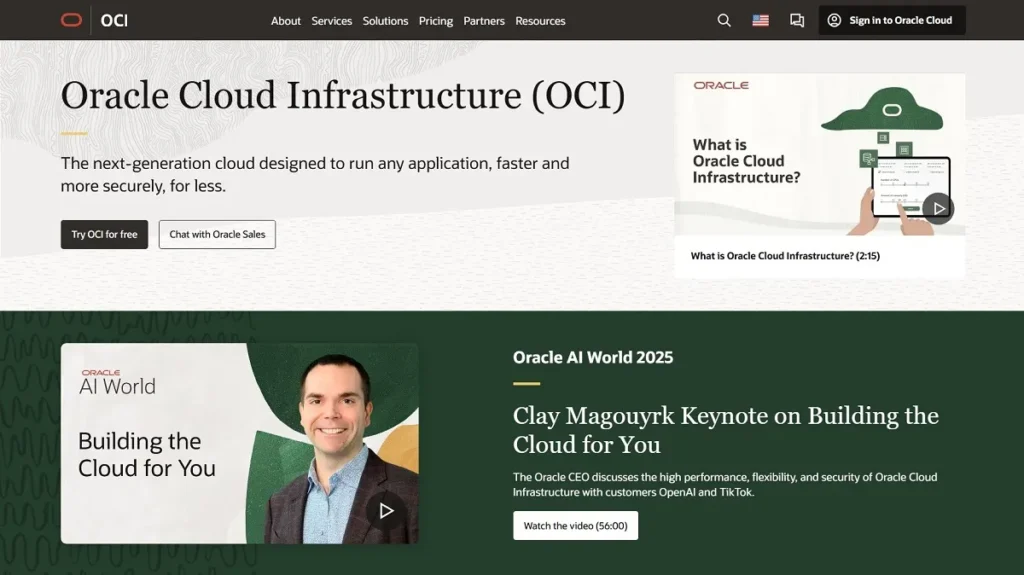
Oracle’s entry into the IaaS wars was late but aggressive. Leveraging its absolute dominance in the enterprise database market, Oracle built OCI from the ground up to do one thing exceptionally well: run Oracle databases.
Why They Win: Price and performance for its niche. OCI aggressively targets its existing database customers, offering significant price advantages and performance guarantees for those willing to move their Oracle workloads to the Oracle Cloud. They also offer high-performance bare metal compute that attracts specific, high-intensity computing customers.
5. IBM Cloud
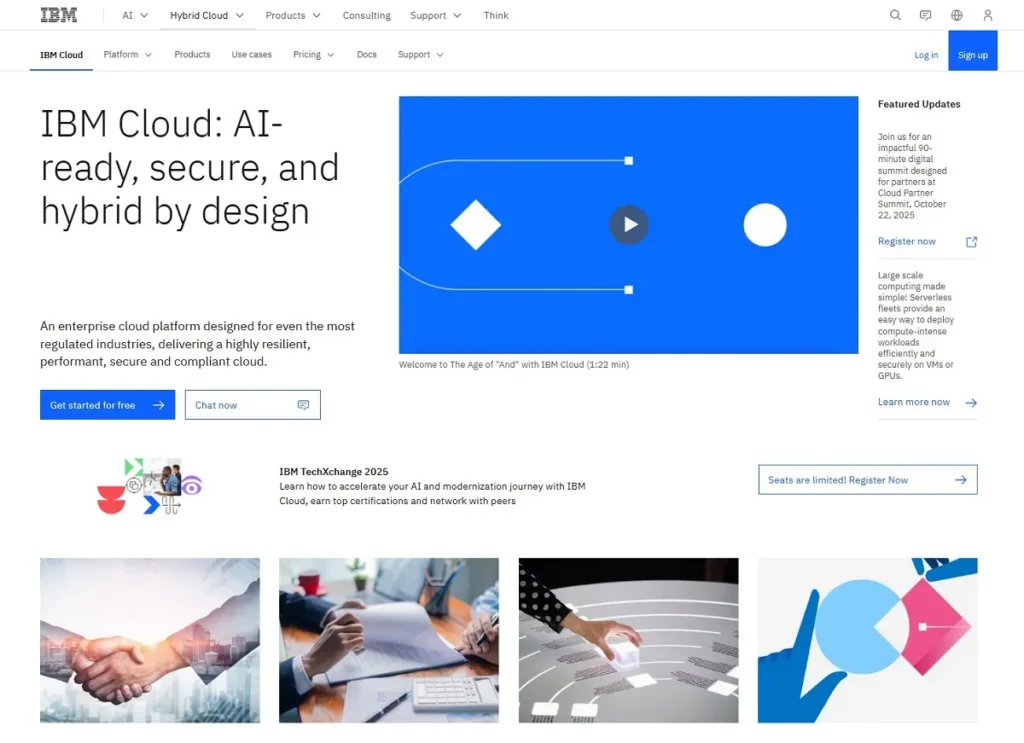
IBM, the original technology giant, has reinvented itself for the cloud era. Its $34 billion acquisition of Red Hat in 2019 was the lynchpin of its strategy: hybrid cloud.
Why They Win: Hybrid cloud and regulated industries. IBM Cloud focuses on large, established enterprises (think banking, healthcare, government) that have complex regulatory needs and decades of legacy systems. Their platform, powered by Red Hat OpenShift, is designed to manage workloads seamlessly across private data centers and multiple public clouds.
6. Salesforce (Heroku)

While Salesforce is famous for its CRM (SaaS), it’s also a major PaaS player thanks to its 2010 acquisition of Heroku. Heroku is, for many developers, the gold standard of Platform-as-a-Service.
Why They Win: Developer experience. Heroku abstracts away all infrastructure. A developer doesn’t worry about virtual machines, networks, or load balancers. They simply git push heroku master, and the platform handles the rest—building, deploying, and scaling the app. It’s pure, elegant PaaS, now deeply integrated with the Salesforce data ecosystem.
7. VMware (by Broadcom)

VMware was a private data center. Its virtualization software, vSphere, allows a single physical server to be carved into dozens of virtual machines, and it has become the undisputed standard. Now owned by Broadcom, its cloud strategy is one of neutrality.
Why They Win: The multi-cloud “glue.” VMware Cloud provides a consistent software layer on top of other clouds. It allows a company to use its existing VMware tools and talent to manage workloads running on AWS, Azure, and GCP, all from a single pane of glass. It’s the enabling technology for a true hybrid and multi-cloud strategy.
8. DigitalOcean

DigitalOcean built its brand as the anti-AWS. Where the Big Three embraced complexity and enterprise contracts, DigitalOcean focused on simplicity, predictable pricing, and the individual developer.
Why They Win: Simplicity and community. “Droplets” (their term for VMs) can be spun up in seconds. The pricing is a flat, predictable monthly fee. But its real secret weapon is its documentation—a massive library of community-written tutorials that are often the top Google result for any server-related question, drawing millions of developers into its ecosystem.
9. Linode (Akamai)
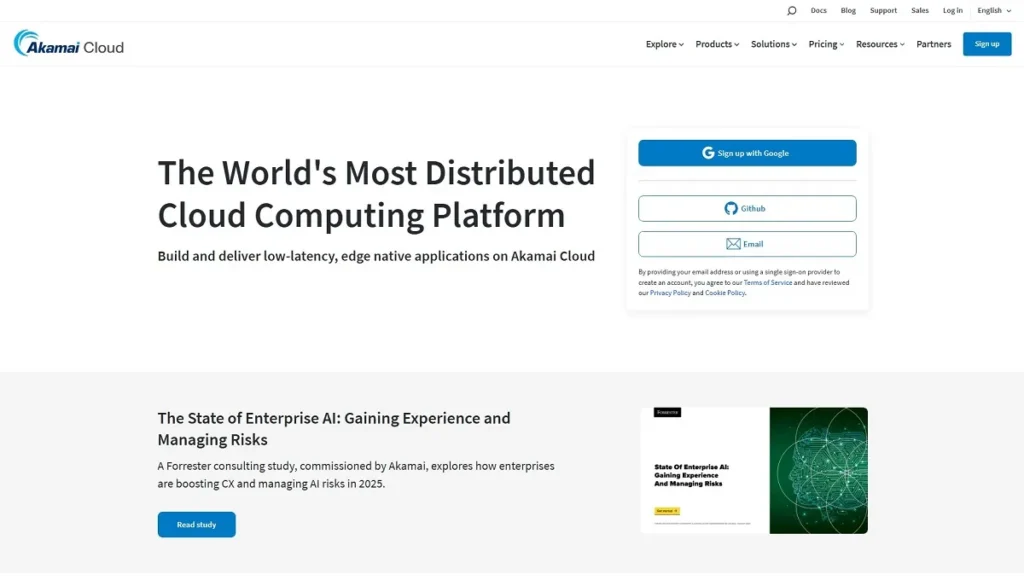
Similar in spirit to DigitalOcean, Linode has been a long-time favorite for its simple, no-nonsense cloud computing. In 2022, it was acquired by Akamai, the content delivery network (CDN) giant.
Why They Win: Performance and network. Linode always competed on raw performance and a clean interface. Now, as part of Akamai, it’s poised to become part of a massively distributed “compute-at-the-edge” platform. This acquisition transforms it from a simple VM provider to a key piece of Akamai’s global network infrastructure.
10. Vultr
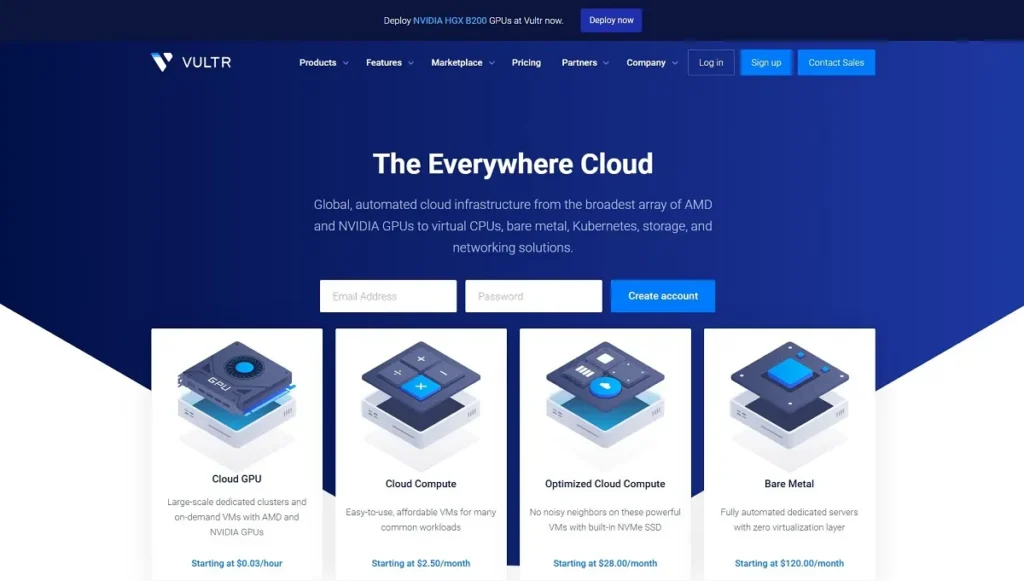
Vultr is a pure-play IaaS provider that competes directly with DigitalOcean and Linode, but with a relentless focus on performance and global footprint.
Why They Win: High-performance and bare metal. Vultr often appeals to users who need raw power. They were early to offer high-frequency compute (using faster CPUs) and a wide array of bare metal server options for workloads that can’t be virtualized. With 32 data centers worldwide, they offer a vast global footprint for low-latency applications.
The IaaS vs. PaaS Dilemma: What Are You Actually Buying?
Understanding the top cloud computing companies USA requires knowing the difference between their core IaaS and PaaS offerings.
Think of it this way:
- IaaS (Infrastructure-as-a-Service) is like leasing an empty, unfurnished restaurant. You get the building, electricity, and plumbing (compute, storage, networking). But you are responsible for everything else: bringing in the ovens, tables, and staff (installing the OS, runtime, middleware, and your application). AWS EC2, GCP Compute Engine, and DigitalOcean Droplets are classic IaaS. It offers maximum control and maximum responsibility.
- PaaS (Platform-as-a-Service) is like leasing a fully-equipped stall in a food court. The kitchen, security, and cleaning are all managed for you. You just bring your recipes (your code) and start cooking. Heroku and Google App Engine are classic PaaS. It dramatically speeds up development by abstracting away the underlying infrastructure, but you sacrifice some control.
Most of the Big Three blur these lines, offering a spectrum of services from raw IaaS to fully-managed PaaS.
Beyond the Hype: The Real Cost of Cloud and Vendor Lock-In
The cloud is sold on a “pay-as-you-go” promise, which sounds fantastically efficient. But the reality is complex. That flexibility can lead to bill shock—a surprisingly massive bill at the end of the month from services left running or inefficiently configured.
The larger, more insidious risk is vendor lock-in.
The top cloud computing companies USA don’t just want to rent you a server. They want you to build your application using their proprietary, managed services. Using AWS’s DynamoDB database or Google’s BigQuery data warehouse is incredibly powerful and convenient. But it also means your application is now deeply, structurally dependent on that specific service.
Moving from AWS to Azure is not like switching electricity providers. It’s like moving your entire custom-built factory, brick by brick, to a new continent where the electrical outlets are a different shape. The top cloud computing companies in the USA know this. Their goal is to become so sticky, so integrated into your operations, that leaving is prohibitively expensive.
The Future is Multi-Cloud and AI-Driven
So, where is this all heading?
First, the future is multi-cloud. Smart companies are increasingly avoiding total lock-in by designing their applications to run across multiple clouds. They use VMware or Kubernetes as a neutral layer, allowing them to cherry-pick the best services from each provider—GCP for AI, AWS for storage, and Azure for its enterprise integrations.
Second, the future is AI. The current generative AI boom is being fought almost exclusively on the cloud. The massive GPU clusters required to train models like those from OpenAI, Anthropic, and Google are only available on these platforms. The next “killer app” for the cloud won’t just be storage; it will be on-demand access to artificial intelligence.
Final Verdict: Choosing Your Cloud Partner
There is no single “best” provider. The very idea is a misunderstanding of the market. The list of top cloud computing companies USA is a menu of specialists, and the right choice depends entirely on who you are.
Are you a developer who needs a simple server online in 30 seconds? DigitalOcean or Vultr is your answer.
Are you a large corporation with a deep investment in Microsoft software? Azure is almost certainly your future.
Are you a fast-growing startup building a data-intensive, AI-driven application from scratch? You should be looking very hard at GCP.
Are you a global retailer who needs iron-clad reliability and the widest possible array of services? You will end up at AWS.
Choosing your cloud provider is not a technical decision; it’s a business one. You are not just buying computing power. You are buying a development philosophy, an ecosystem of tools, and a partner for your future growth. Look past the marketing, understand the real trade-offs, and choose wisely. Your company’s foundation depends on it.
